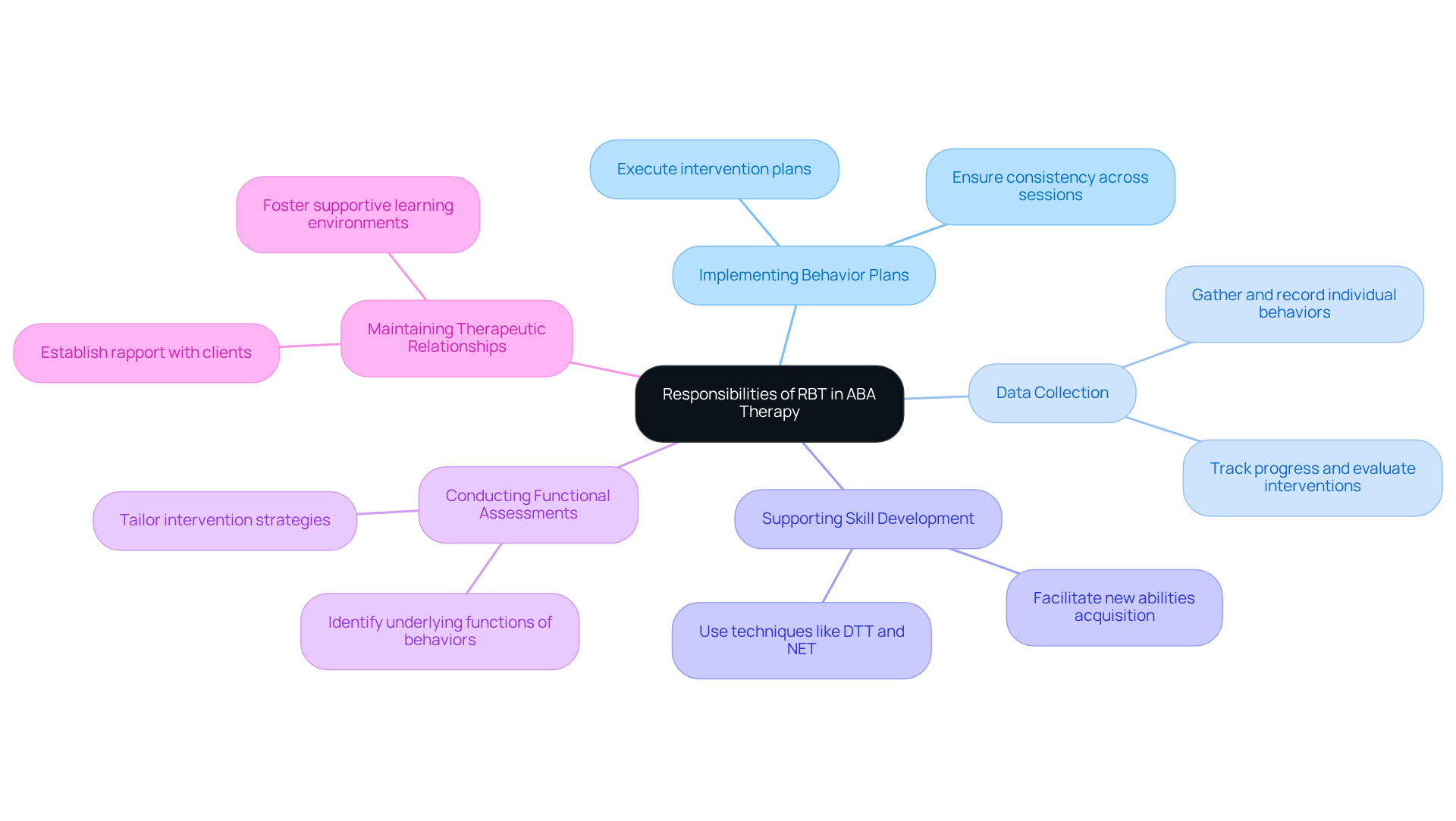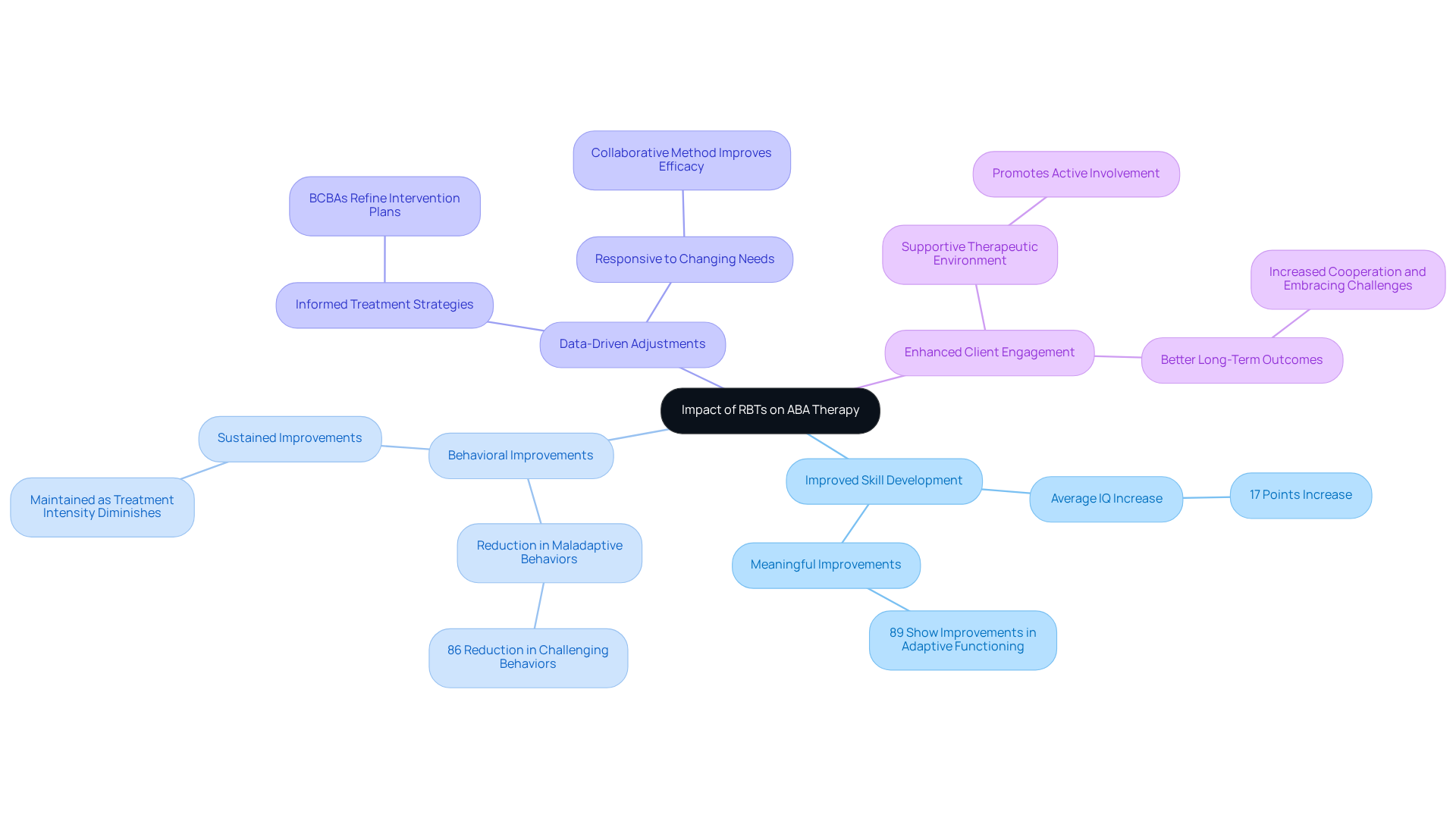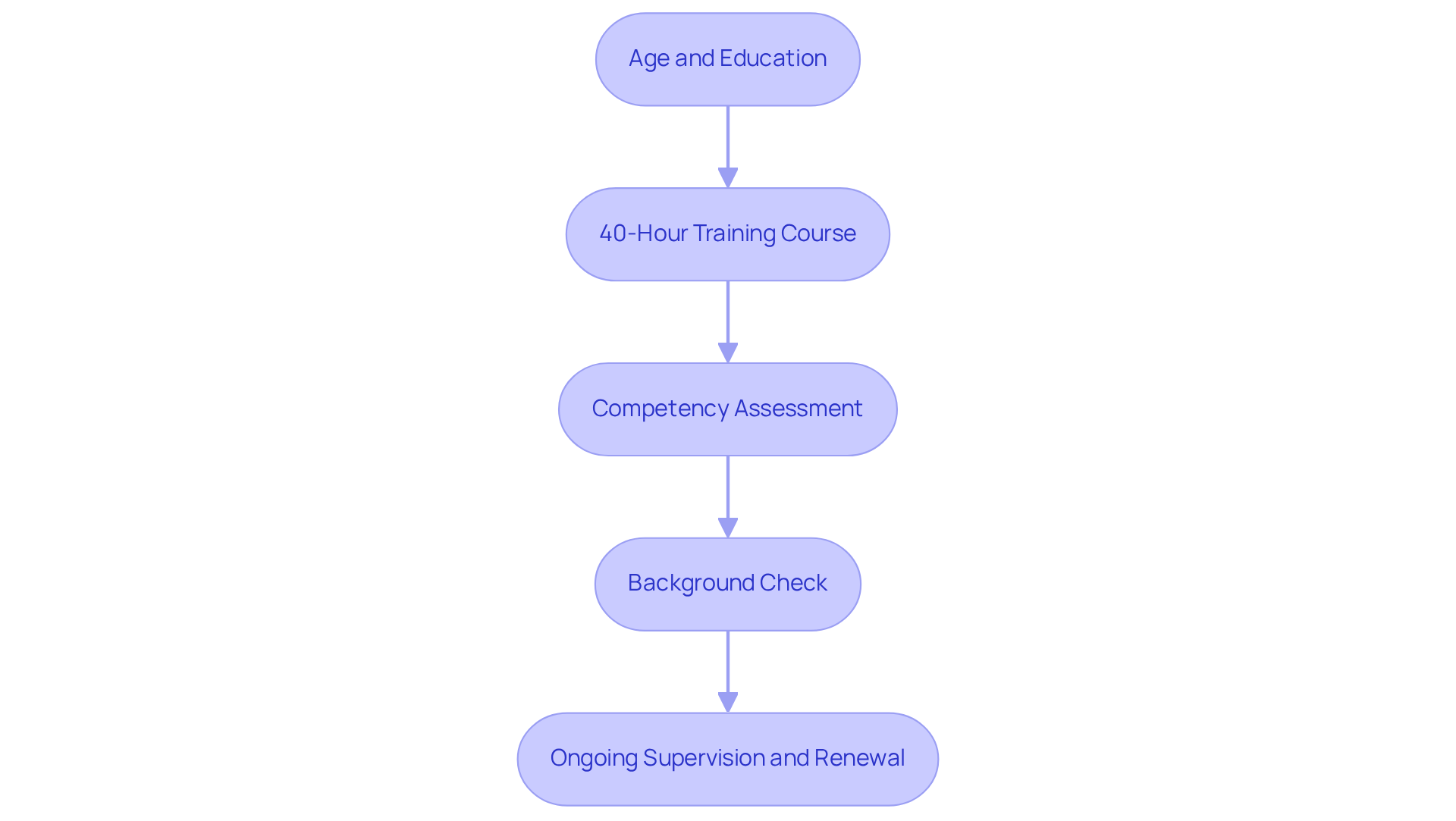October 16, 2025

The demand for Registered Behavior Technicians (RBTs) in Applied Behavior Analysis (ABA) therapy is on the rise, underscoring their critical role in the field. RBTs are responsible for:
These responsibilities significantly impact client outcomes, making their contribution invaluable.
Evidence supports the assertion that RBTs play a vital role in skill acquisition and behavioral improvements. Through structured interventions and supportive relationships with clients, RBTs enhance the effectiveness of ABA therapy. Their work not only facilitates immediate behavioral changes but also promotes long-term skill development, which is essential for client success.
Are you facing challenges in hiring qualified RBTs? Consider how Hire ABA can streamline your recruitment process and connect you with top talent in the field. With a reliable platform at your disposal, you can ensure that your clients receive the highest quality of care from skilled professionals.
In conclusion, the role of RBTs in ABA therapy is crucial. By understanding their responsibilities and the impact they have on client outcomes, healthcare employers can make informed hiring decisions that ultimately benefit their practice and the individuals they serve.
The role of a Registered Behavior Technician (RBT) is increasingly recognized as vital in the field of Applied Behavior Analysis (ABA), serving as a cornerstone for effective therapy. A compelling statistic shows that the demand for qualified RBTs is surging, highlighting the urgent need for effective recruitment strategies.
By implementing tailored behavior intervention plans under the supervision of Board Certified Behavior Analysts (BCBAs), RBTs directly influence the development of essential skills in individuals, fostering significant improvements in their social and behavioral abilities.
However, this rising demand raises critical questions:
Exploring these aspects reveals not only the transformative potential of RBTs but also underscores the importance of platforms like Hire ABA in addressing the recruitment challenges faced by healthcare employers.
An ABA RBT plays a pivotal role as a paraprofessional, directly assisting individuals who are undergoing Applied Behavior Analysis treatment. Operating under the guidance of Board Certified Behavior Analysts (BCBAs), RBTs are responsible for implementing behavior intervention plans designed to enhance individuals' social, communication, and behavioral skills. This role is essential, as ABA RBTs provide consistent and structured interventions that are vital to the success of ABA treatment programs.
Moreover, behavior technicians are trained to adhere to ethical standards and optimal practices in their interactions with individuals. This commitment ensures that treatment is delivered efficiently and with empathy, fostering a supportive environment for those in need.
As the demand for BCBAs continues to rise, the importance of having qualified ABA RBT practitioners cannot be overstated. Consider the challenges you face in hiring qualified professionals. How can platforms like Hire ABA and ensure you have the right team in place?
In conclusion, the role of ABA RBTs is not only crucial but also transformative in the field of ABA. By prioritizing the recruitment of skilled technicians, you can enhance the effectiveness of your treatment programs and ultimately improve outcomes for individuals seeking support.
ABA RBTs are integral to the successful implementation of Applied Behavior Analysis (ABA) therapy. With the projected to grow by 9 percent from 2021 to 2031, the importance of ABA RBT cannot be overstated. Their responsibilities significantly impact client outcomes in several key areas:
Through these responsibilities, RBTs play a pivotal role in the effectiveness of Applied Behavior Analysis (ABA RBT), ensuring individuals receive high-quality, tailored support that fosters their growth and development. With an average salary of around $54,000, the role of behavior technicians is increasingly significant in the field of Applied Behavior Analysis. Are you facing challenges in hiring qualified RBTs? Consider utilizing Hire ABA for recruitment to address your needs effectively.

ABA RBTs are indispensable to the success of ABA therapy, significantly enhancing participant outcomes through their direct interactions. Their contributions are multifaceted:
Through these roles, registered behavior technicians not only but also contribute to a more efficient and adaptable aba rbt environment. Are you facing challenges in hiring qualified RBTs? Consider how Hire ABA can streamline your recruitment process and ensure you have the expertise needed to support your clients effectively.

To become an ABA RBT, candidates must fulfill specific that ensure they are well-prepared for their roles in ABA therapy.
Effective training programs for registered behavior technicians have demonstrated encouraging completion rates, with multiple institutions indicating first-time examination pass rates surpassing 90%. This highlights the effectiveness of structured training in preparing candidates for certification and subsequent employment in a growing job market, projected to create approximately 12,500 new RBT positions by 2031.
Consider this: the average yearly salary for registered behavior technicians is around $54,000, making this role financially viable and appealing for job seekers. The job growth rate for registered behavior technicians is projected to range from 12% to 22% over the next ten years, underscoring the rising demand for skilled professionals in this area. Furthermore, the competitive nature of the job market is underscored by the fact that RBT wages are often comparable to those in retail and service industries.
Addressing the ongoing challenges of high turnover in the ABA industry is crucial, as it impacts the quality of care provided. The emphasis on rigorous training and certification processes underscores the critical role that ABA RBTs play in delivering quality care in ABA therapy.

The demand for skilled Registered Behavior Technicians (RBTs) is on the rise, highlighting their essential role in the field of Applied Behavior Analysis (ABA). RBTs serve as the backbone of effective therapy delivery, working closely under the supervision of Board Certified Behavior Analysts (BCBAs) to implement tailored behavior intervention plans that significantly enhance the lives of individuals seeking support. Their commitment to ethical standards and consistent practices ensures that clients receive the highest quality of care, making their contributions invaluable to the success of ABA programs.
Key responsibilities of RBTs include:
They not only implement strategies but also foster therapeutic relationships that promote engagement and motivation in clients. The impact of RBTs is evident through improved skill acquisition, reduced maladaptive behaviors, and enhanced client outcomes, demonstrating their critical role in the overall effectiveness of ABA therapy.
As the demand for skilled RBTs continues to rise, it is essential to prioritize their recruitment and training to ensure quality support for individuals in need. Investing in the development of qualified RBTs not only benefits clients but also strengthens the ABA field as a whole. For those involved in hiring, have you considered how platforms like Hire ABA can streamline the recruitment process? Emphasizing the importance of RBTs is not just about filling positions; it is about nurturing a workforce dedicated to transforming lives through effective behavioral interventions. Explore the potential of Hire ABA to enhance your recruitment efforts and ultimately lead to better outcomes for both practitioners and clients alike.
What is the primary role of a Registered Behavior Technician (RBT)?
The primary role of an RBT is to assist individuals undergoing Applied Behavior Analysis (ABA) treatment by implementing behavior intervention plans under the guidance of Board Certified Behavior Analysts (BCBAs).
What responsibilities do RBTs have in their role?
RBTs are responsible for implementing behavior intervention plans aimed at enhancing individuals' social, communication, and behavioral skills, providing consistent and structured interventions essential for the success of ABA treatment programs.
How do RBTs ensure ethical standards in their practice?
RBTs are trained to adhere to ethical standards and optimal practices in their interactions with individuals, ensuring that treatment is delivered efficiently and with empathy.
Why is the demand for RBTs increasing?
The demand for RBTs is increasing due to the rising need for qualified professionals to support the growing number of individuals seeking ABA treatment.
How can recruitment platforms like Hire ABA assist in hiring RBTs?
Platforms like Hire ABA can streamline the recruitment process for hiring qualified RBT practitioners, helping organizations build the right team to enhance the effectiveness of their treatment programs.
What impact do RBTs have on ABA treatment outcomes?
RBTs play a crucial and transformative role in ABA, and prioritizing the recruitment of skilled technicians can significantly improve outcomes for individuals seeking support.
Our expert recruitment strategies and AI-driven sourcing ensure that you receive top-notch candidates quickly, without compromising on quality. Whether you’re looking for BCBAs, Clinical Directors, or RBTs, we’ve got you covered.